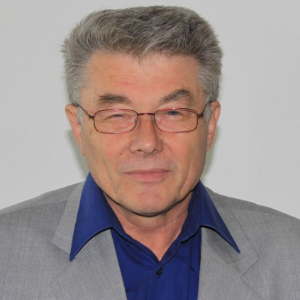Abstract Detail

Vladimir Zajac
Cancer Research Institute, Slovakia
Abstract
Viruses are parasites. that cannot exist on its own and is completely dependent on its carrier. This is the basic condition of its existence. The host of the parasite is a living cell. Based on our long-term work with BLV in stables, we have come to the conclusion that the host of BLV is bacterial cells. This idea was subsequently tested in an HIV model. It has been confirmed that its host can be bacteria and yeast. Subsequently, rectal swabs were taken from people who had overcome infection with the new coronavirus. The RT PCR test found that 83% of infected people carry the virus in the intestinal tract, and if immunity weakens, it can penetrate the body and infect the infected person and others. In many cases, carriers containing the virus can penetrate the intestinal tract, settle for months or years and multiply and mutate. However, if the virus in the carrier reaches the intestinal tract, the vaccines are not effective there. Based on these results, it was concluded that many, if not all, viruses can be carried and transmitted by bacteria, yeasts, or other unicellular organisms. The detection of BLV, HIV and the new coronavirus hidden in carriers opened the door. It is the first direct evidence of viral pathogens localized in our intestinal tract. The high infectivity found in wastewater worldwide points to the presence of the novel coronavirus in the intestinal tract after overcoming the infection. This is also evidenced by the creation of new and new variants of the new coronavirus. If we want to stop viral infections, we have to identify viral carriers, eliminate them along with the virus, and that's how we stop viral infections. Very little is known about the contents of the intestinal tract. It is believed that after the immune system is weakened, pathogens from the tract enter the body, attack its organs and cause many degenerative diseases, including tumors.The mechanism of action of intestinal pathogens is similar to when a drop falls on a stone, after a long time a hole forms there. Their elimination will radically improve the health status of the entire human population. Future progress in medicine will focus on analyzing the context of the intestinal tract - that will be New Medicina.Biography
Vladimir Zajac has completed his PhD. in 1982 at the Cancer Research Institute of Slovak Academy of Sciences in Bratislava (Slovakia), where he worked as the Head of Department of Cancer Genetics from 1996 to 2010. He joined the Medical Faculty of the Comenius University as Associate Professor of Genetics in 2007. He was the supervisor of eight PhD students. He has published 78 works, mostly in renowned journals, and is the author of chapters in four professional books. He is the editor of the book "Bacteria, Viruses and Parasites in the AIDS Process" (In Tech, 2011).
